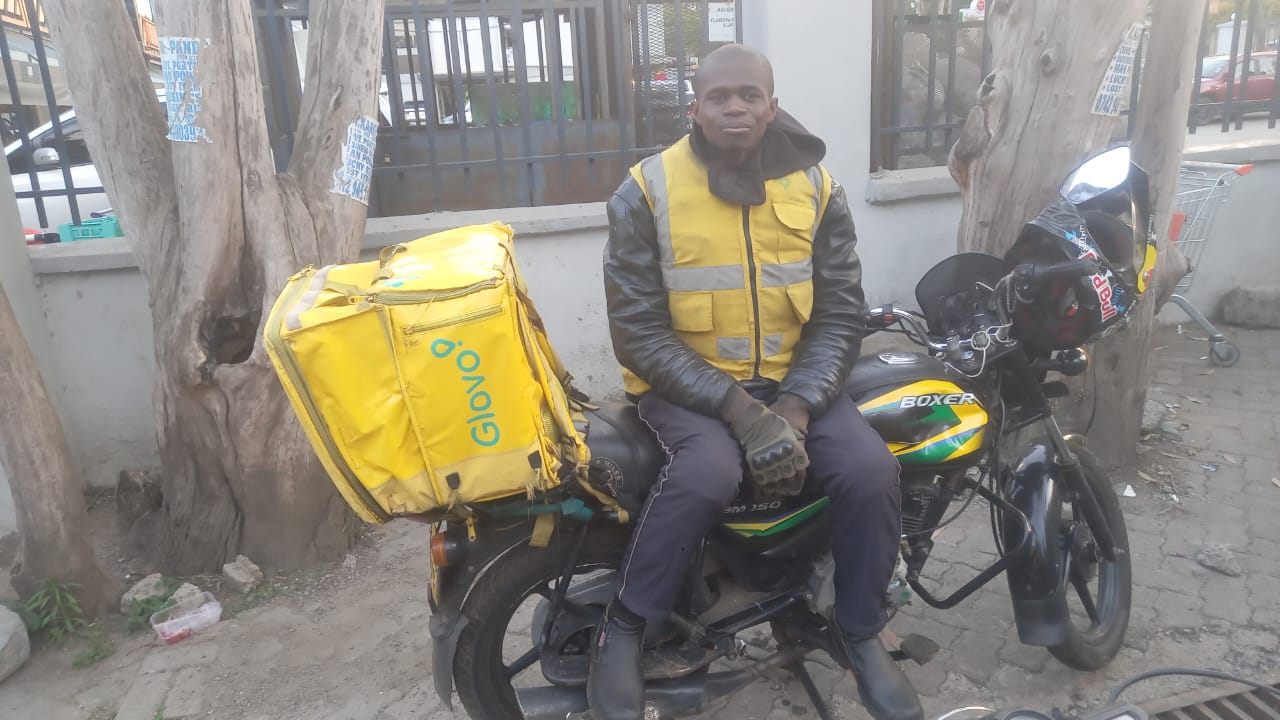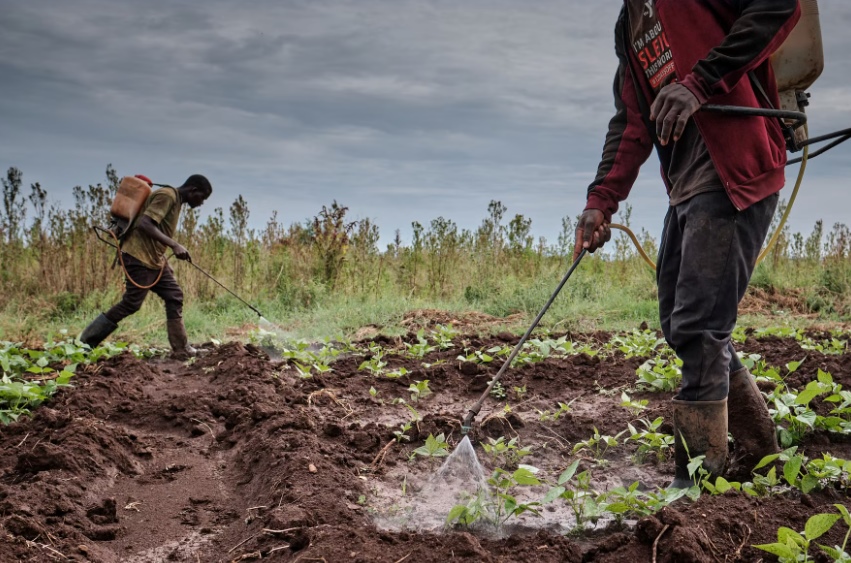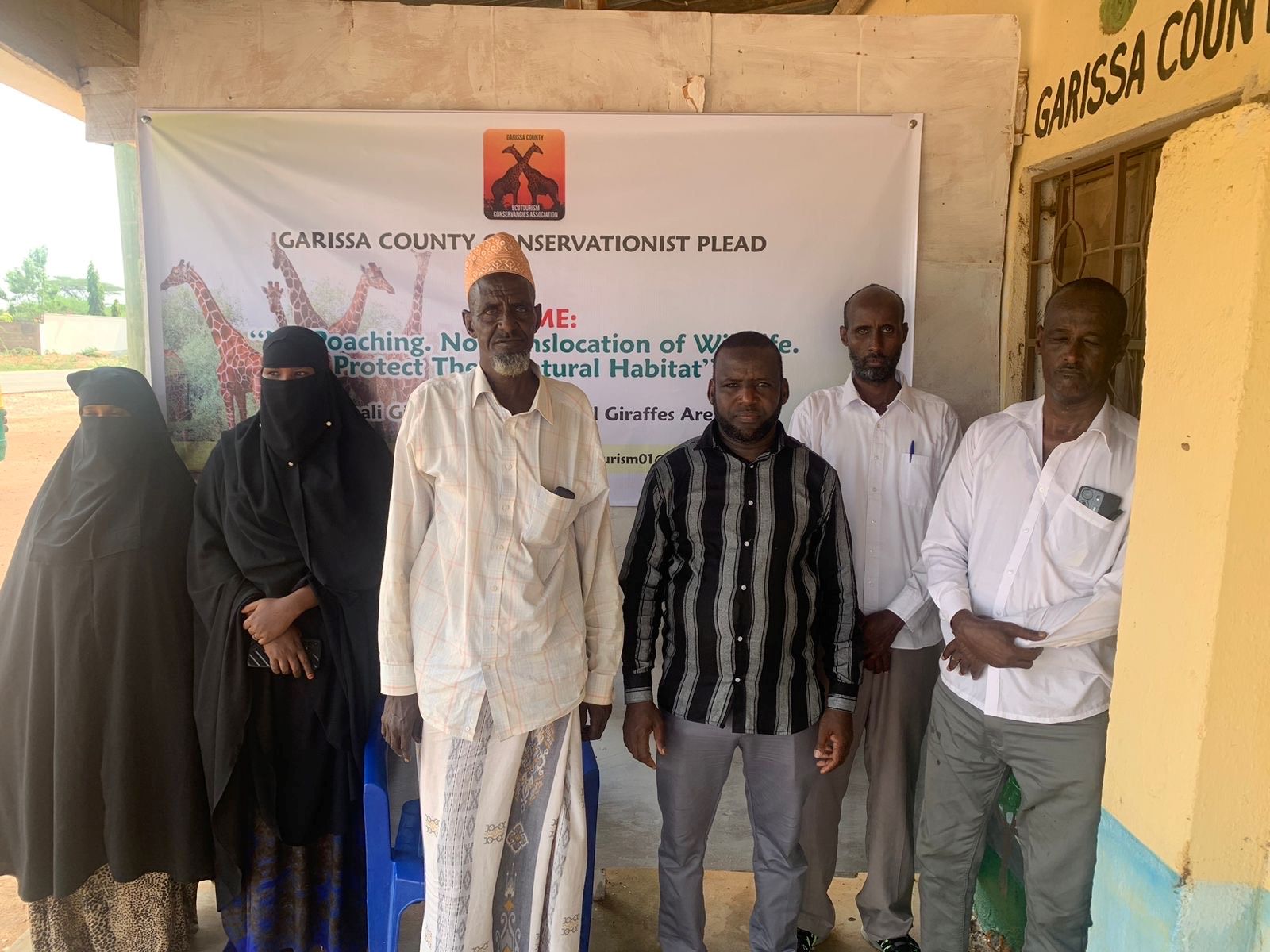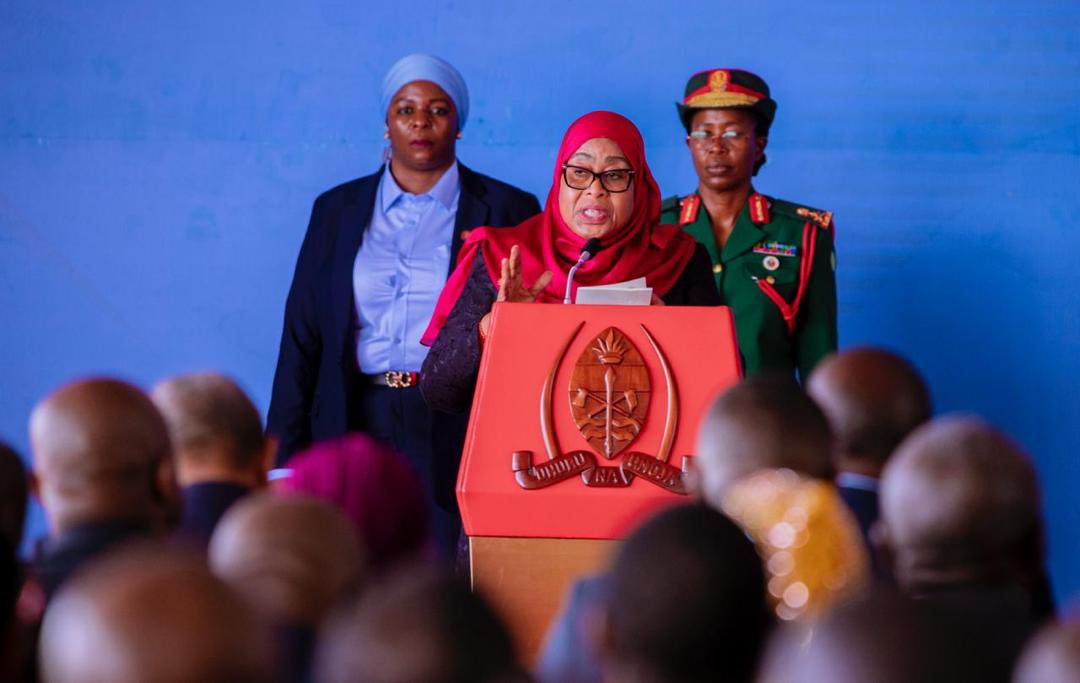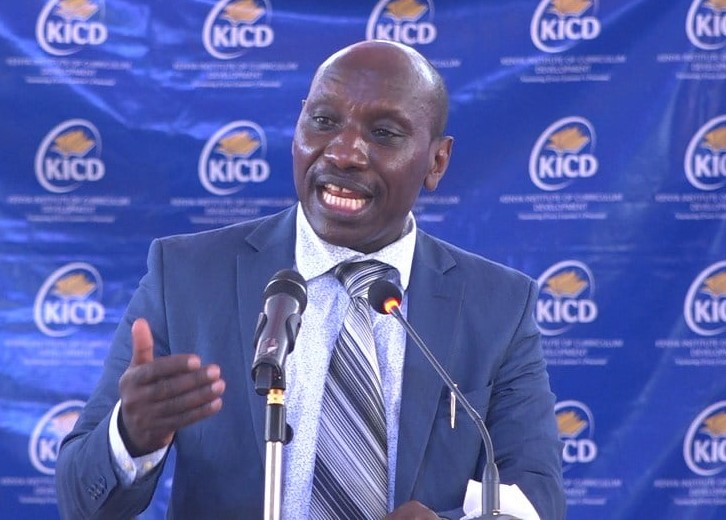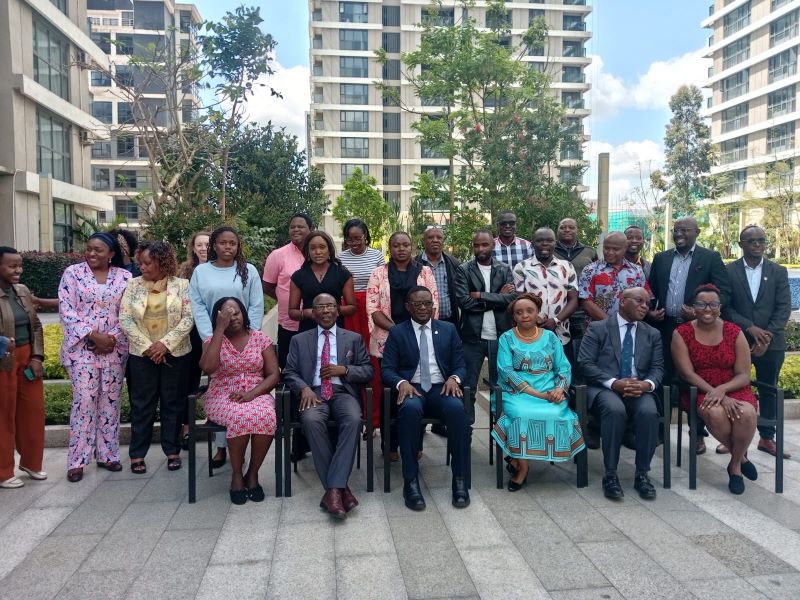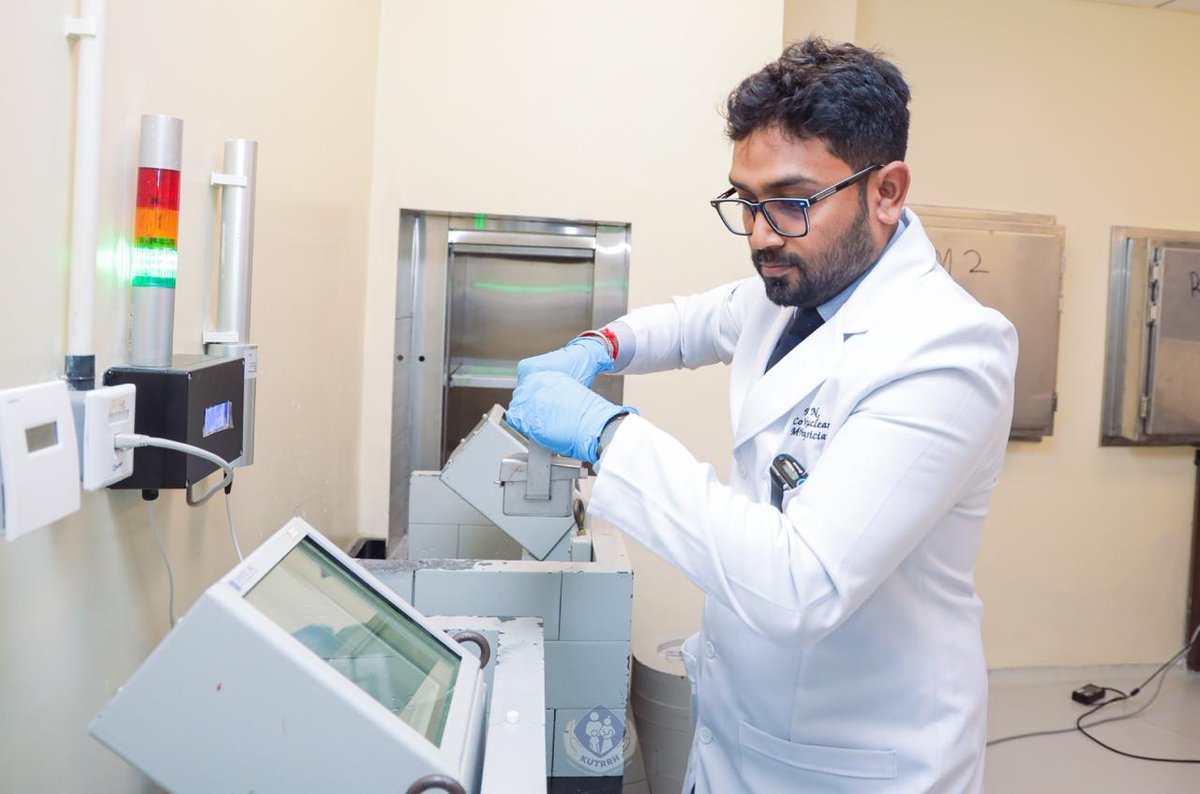Isiolo widows join hands in eradicating poverty, drug abuse among youth
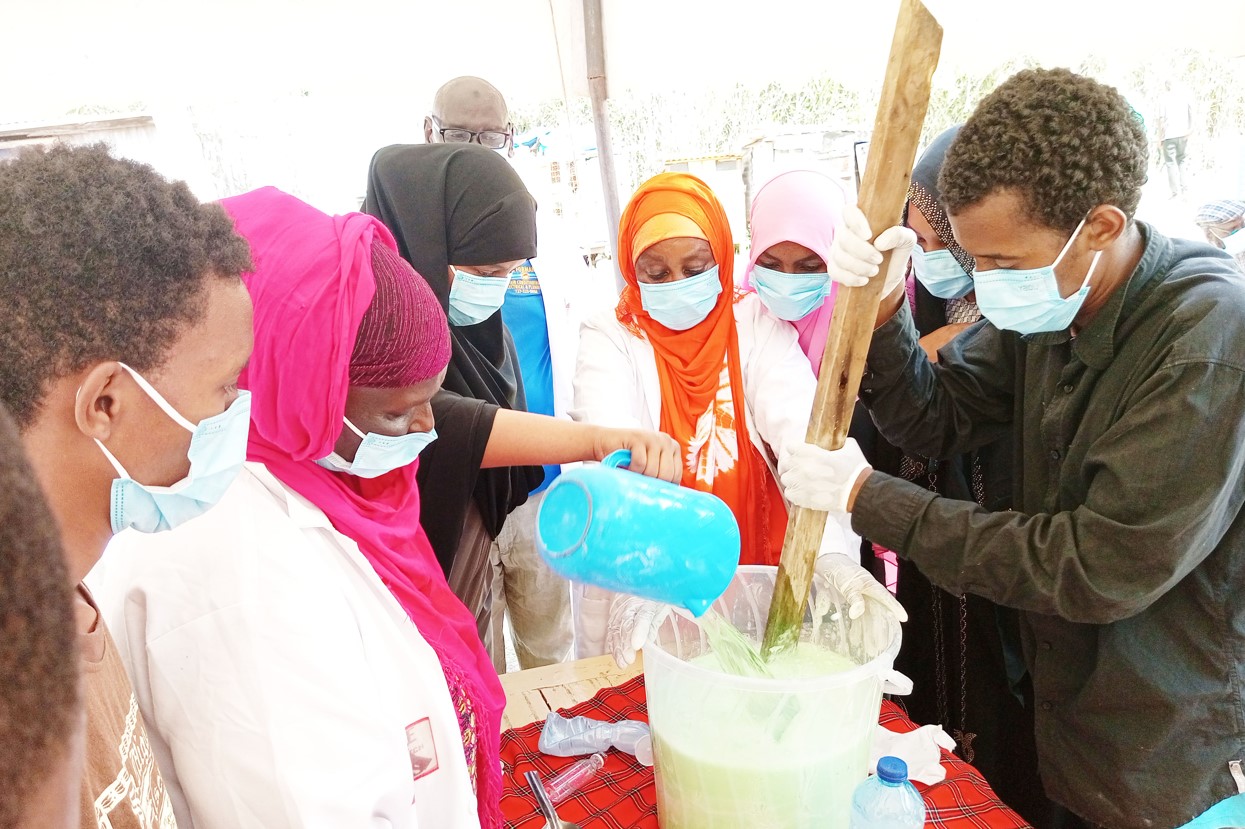
The group is committed to helping young people get out of poverty and using them as community anti-drug champions.
Adjacent to the Teachers Service Commission (TSC) offices in Isiolo town is a sturdy timber house resting on a 50 by 100-metre plot.
Beneath a tent on the left side are tens of young people, seated on plastic chairs, gazing at a man wearing a mask and in a white lab coat in what appears like a normal science lesson.
More To Read
- 70-year-old man convicted of stealing widow’s Sh752,000 pension
- Mother, four children killed in suspected love triangle arson attack in Isiolo
- 78 foreigners arrested, 58 guns seized in past three months in Isiolo security crackdown
- Isiolo morans turn to crop farming after quitting cattle rustling
- Youth Kikao: Isiolo youth launch forum to monitor, promote transparency in governance
- Stakeholders call for joint efforts to protect, educate Isiolo County's girls
On the table are some items in marked plastic bottles, both in powder and aqueous forms, which one would mistake for laboratory chemicals.
Minutes later, the youths are given surgical gloves as a woman brings in several buckets. The speaker, whom we later establish is a trainer on a range of topical issues including the production of homemade detergents, then divides the learners into groups of five.
Among the youths is a 20-year-old Abdi Rashid from Wabera Ward who has been doing casual jobs after failing to secure direct entry to university after he sat his KCSE exams in 2022.
“My parents could not take me to a college due to poverty. Lack of skills has made me live a desperate life because I cannot even negotiate for better pay,” he told The Eastleigh Voice.
He is hopeful that the skills he will gain during the session will enhance his chances of earning better in the future or enable him to start his own business to empower himself economically.
The training programme is being undertaken by a group of widows and widowers, the majority of whom lost their spouses to inter-community conflicts. It seeks to keep young people engaged and free from drugs and enable them to resist peer pressure.
Drug proliferation
Being a gateway to northern Kenya, Isiolo continues to grapple with drug proliferation due to the porous Kenya-Ethiopia border which facilitates movement of the narcotics from the neighbouring country.
Due to poverty, some youths drop out of school to venture into the boda boda business, while others resort to crime to make ends meet. The majority of these dropouts abuse drugs to forget their woes, putting their health at risk.
Fatuma Halkano, the secretary of the group, said the training programme on the production of detergents, shampoo, sanitisers, handwashing soap, and bleaching agents was born out of a desire to address the drug abuse menace which she said had ruined the lives of hundreds of youths and turned many to zombies.
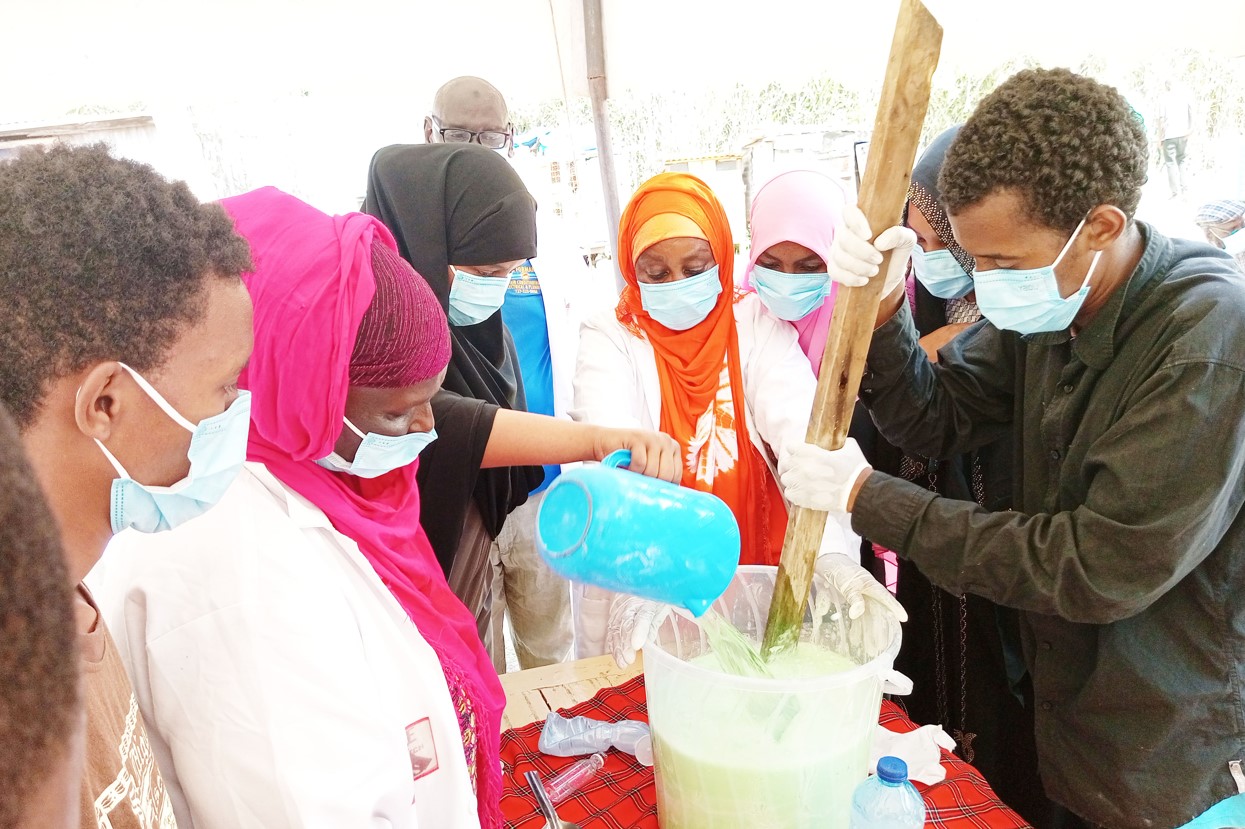 Some of the participants during a recent youth training on the production of detergents, shampoo, sanitisers, handwash and bleaching agents on the outskirts of Isiolo town. (Photo: Waweru Wairimu)
Some of the participants during a recent youth training on the production of detergents, shampoo, sanitisers, handwash and bleaching agents on the outskirts of Isiolo town. (Photo: Waweru Wairimu)
The group of about 100 members previously contracted some youths to sell their products locally but realised a transfer of knowledge would be more impactful in addressing drug indulgence.
“The training, which takes between one and two weeks, is meant to offer them a lifeline because, with as little as Sh300, they can buy some of the ingredients and start a hawking business and progressively grow it,” she said.
She lamented that many youths were being misused by local politicians to cause mayhem and spread propaganda online, making them unable to positively participate in productive activities.
Another trainee, Shukria Ali, was elated on learning how to prepare imidacloprid, a pesticide for combating bedbugs and fumigating infested homes, revealing her intent to start a small business dealing with disinfectants and antiseptic liquids the moment she got financing.
“More youths should be reached out because very many are living desperate lives due to joblessness. Poverty in their homes has pushed them to the streets where they abuse all manner of drugs,” she said.
Network
Apart from the training, the platform offers them an opportunity to network, exchange ideas, and build partnerships for mutual benefit.
The widows run the programme through their recently registered People Like Us community-based organisation.
During the training, the youth are also encouraged to participate in sports during their leisure time so that they are not lured into drugs and promiscuous behaviour, according to the CBO’s chairperson Hussein Mohammed.
“We also encourage them to form and register groups to access support from the county and national governments, NGOs, and other development partners and undertake follow-ups to help them address any emerging challenges while running their businesses,” he said.
Hussein said that if adequately supported, the youth have the potential to become agents of positive change and inspiring action in their communities.
The widows are, however, unable to run the programmes regularly due to strained resources which limit the number of youths they enlist for the training. They have in the last six months trained over 200 youths.
“It is the reason we do the training at the home of one of the members. We donate our skills and contribute to buying the ingredients and refreshments for the trainees,” Fatuma said.
In the current third cohort, the widows have trained 60 young people from Isiolo Sub-County, in partnership with the county government and the World Food Programme.
Though disadvantaged by patriarchy, poverty, and harmful cultural practices, the widows remain committed to helping the young people out of poverty and using them as anti-drug champions in the county.
“In addition to them sharing the knowledge learnt here with other youths, we are deliberate on mentoring them to become agents of change in their communities,” Fatuma said.
Top Stories Today

